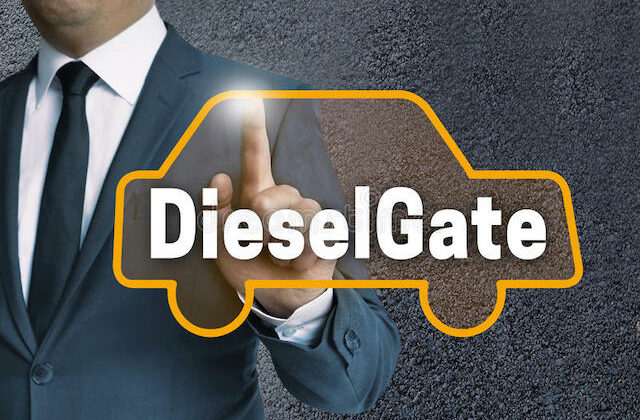
Volkswagen’s Dieselgate scandal is being blamed for what a growing number of carmakers say is an unreasonably hasty move by the European Commission (EC) to impose strict new Euro7 emission regulations.
An EC spokesperson told Reuters that the proposed Euro7 emissions tests were important because of “scandals in the past about cheating devices”. Euro7 would widen real-driving emissions (RDE) testing and add continuous testing of emissions via on-board sensors. The rules would also cover tyre and brake emissions.
The remark prompted response from manufacturers and industry executives. Truck company Iveco’s CEO Gerrit Marx said: “It is an accepted behaviour of politicians in Brussels to bash the automotive industry because we deserve it” following Dieselgate.
Stefan Bratzel, head of think-tank the Centre of Automotive Management, told Reuters Dieselgate has created an image problem for carmakers where “you couldn’t trust in what they said.”
Dieselgate got its name after VW admitted in 2015 to fitting about 11 million cars worldwide with software to cheat diesel emissions tests. The scandal cost the German carmaker more than 32 billion euros ($NZ56b) in vehicle refits, fines and legal costs.
Iveco Group, Stellantis, VW, Volvo, and Daimler are among automotive manufacturers who believe the planned Euro7 regulations are too costly, rushed, and unnecessary. The EC plans to introduce the new emissions limits in 2025 for cars and 2027 for trucks and vans.
Iveco’s Marx said the proposals were “plain stupid.” Stellantis CEO Carlos Tavares said the rules are “useless” while carmakers invest tens of billions of euros in electric vehicles (EVs) and start phasing out fossil-fuel cars.
Mattias Johansson, Volvo Cars’ head of governmental affairs, told Reuters the 2025 deadline left “practically no reasonable lead time” to make engine changes and lacks details on testing procedures. Volvo has committed to being fully electric by 2030.
Daimler Truck CEO Martin Daum said new emission sensors will require “huge investments”. Alexander Vlaskamp, CEO of MAN trucks, estimates Euro7 will cost it 1 billion euros ($NZ1.75b).
EU countries and lawmakers will negotiate Euro7 proposals this year on tighter limits for car emissions – for diesel cars, but not petrol – and for heavy-duty trucks and buses, including nitrogen oxide and carbon monoxide.
Lobby group the European Automobile Manufacturers’ Association (ACEA) said Euro7 would raise new car prices in Europe by 2000 euros ($NZ3500). Czech carmaker Skoda last week claimed it would have to axe 3000 jobs.
The EC estimates Euro7 could add up to 150 euros ($NZ265) to car prices and 2600 euros ($NZ4500) for trucks and buses. The ACEA says pollutant reductions from Euro7 will be minimal. The EC argues they will be significant.
Last week, the International Council for Clean Transportation (ICCT), an independent non-profit organisation, said 77% of tests on pre-RDE Euro6 diesel vehicles exceed a “suspicious” emissions threshold, indicating “likely use” of cheating devices.
Not all of the motoring industry is unhappy about Euro 7. Pete Williams, European head of technical compliance for US engine maker Cummins, told Reuters Euro7 “strikes a good balance between being tough, clear and enforceable”.
But he added there are some vague areas, including how on-board monitoring (OBM) – sensors inside a vehicle to detect if the vehicle is exceeding emission limits – should work. “We know how to spell OBM, but we don’t know what it is,” Williams said.
